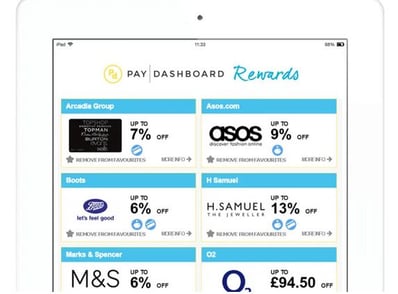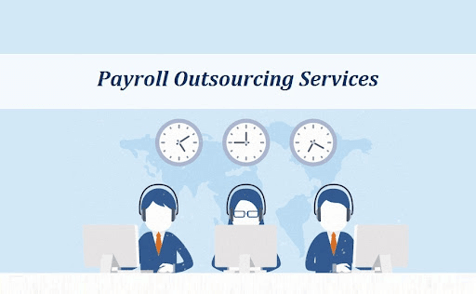There are many fun activities in the world, including dancing, beach volleyball, and taking long hot showers. However, managing your payroll services is not one of them. It is not only not enjoyable, but it also takes a lot of time, money, and effort to pay your employees.
To save time, effort and money, many companies in the UK are currently outsourcing their payroll and we can’t blame them because outsourcing payroll is economical, safe, and efficient. Additionally, it gets rid of fraud and the threat of fines for neglecting to disclose your payroll figures, providing you additional time and less stress.

Do you wish to outsource payroll? In this article, we dwell on outsourced payroll costs, payroll services, factors affecting the outsourcing payroll cost, reasons to opt for outsourcing payroll from payroll companies, and more. Continue reading to find out.
First off, setting up payroll typically involves a one-time expense. Based on the size of the payroll process you require for your business, the price to set up the payroll system can vary. The payroll costs will increase with the size of the company, but be careful because some have minimum fees mentioned in the terms and conditions; ensure that you comply with all of them to avoid overspending.
Outsourcing your firm’s payroll entails a wide range of charges. The overall monthly charge that you may have to pay can vary substantially depending on one-time costs, tax preparation costs, and the price of the service altogether. Many payroll service providers offer different levels of payroll services, from the most straightforward (just calculating and depositing checks) to the most complex (giving advice, support, online services, PAYE payments to name just a few).
⇒ Weekly payrolls
You have to pay per employee per week if you compensate your staff weekly. You will pay more since the payroll supplier is working about four to five times as hard.
⇒ Different price structures
Many payroll service companies have a set monthly fee for their products and services. Since it’s not a particularly flexible approach to managing your payroll, this is typically only appropriate for smaller organizations with a pretty stable headcount. If you wish to handle bonuses, and commissions or you frequently have new hires, a fixed monthly fee won’t work.
Factors That Affect Costs of Outsourcing Payroll
1. Business Size
Depending on how big of a payroll system you require for your business, the setup costs can vary. The cost will increase with the size of the payroll company, but be careful because some have minimal fees in their clauses and conditions; be sure to comply with all of them to avoid overspending.
2. Functionality
The cost of your payroll service will depend on the factors that matter. For instance, some service providers charge a fee for managing and automating employee pension enrollment.
3. Setup
Some service providers might as well charge you a setup fee.
4. Integrations
You might wish to build on and incorporate additional managed procedures and services to any payroll service. These could include accounting as well as HR management, and such factors will increase the total cost of managed payroll.
5. Auto-enrollment fees
Payroll systems’ Auto-Enrolment fees are one way they can charge you a significant amount of money. Check to see what the auto-enrolment fees are before actually applying because it takes time but they may charge an exorbitant amount of money that is unjustifiable, which may discourage many businesses from using a payroll system.
Why Should You Outsource Your Payroll?

-
The Cost
A new department would be needed by companies, particularly those with big scale operations, to handle their payroll requirements. This requires the business to make a large investment in the payroll department’s IT systems and technologies as well. Furthermore, a significant amount of effort would be needed to train the company’s workers about the rules as well as other legal compliances.
Because payroll involves money as well as other important information, the organization will also need to invest a lot of revenue in examining and double-checking the information. The firm may concentrate on its main area of service and raise the level of its core competencies by outsourcing the full HR and payroll service, which also saves a significant amount of money.
-
Time Saving
It takes a long time to handle payroll without payroll software. Regardless of the number of employees a company has, processing payroll requires time and meticulousness. This frequently comes at the expense of important time that could be used to focus on more urgent business objectives like generating revenue or providing customer service.
This personnel can concentrate on other important aspects of the business, such as creating financial plans that boost the company’s edge over its competitors, by freeing up the payroll department from these duties. Owners can devote more time to what is important to them by outsourcing payroll to a trustworthy source. They frequently also have a range of options at their disposal to optimize the time saved throughout the payment period. Company owners can select how frequently they’d like to be notified for payroll-related duties, and additional tasks, like new employee reports or benefits admin, can be simply added to the outsourced mix. Payroll suppliers will probably only need to get in touch with owners once for each payment period to let them know that payroll has indeed been done successfully provided there are no errors or other issues.
-
Not Having The Right Expertise
A challenging issue for many company owners is payroll. You reduce the likelihood of mistakes, production delays, errors, or missing deadlines of payroll tax filings by employing specialists whose primary job and area of expertise is payroll. You must ensure that everyone gets paid on schedule and that all payments are accurate for each employee. Payroll calculations involve numerous more variables, such as taxable income, insurance contributions, vacations, college loans, and more, in addition to adding up the hours spent working and multiplying the result by the hourly rate. It will take time to teach an older worker, and you might discover that you need to train two people so that one can fill in for the other if the first employee is unable to do so.
-
Reduced Fines
A sizeable portion of small firms pay penalties for late payments or filing errors. The continual errors may lead to audits or fines that are disadvantageous for the firm.
-
The Rules Frequently Change
One of the main issues considered by firms when outsourcing payroll is identity theft. Even the most dependable worker is more likely to embezzle money from the firm or destroy data with malicious intent when working in-house. Finding and hiring an outside specialist in this field is, therefore, a good idea.
-
Data Confidentiality
Multiple payroll providers have the resources to let the customers know about different types and sorts of payroll fraud. Because online payroll platforms store and safeguard your payroll data, confidentiality becomes important in payroll service.
Many payroll service providers do have the technology to inform clients about various types of payroll fraud. Additionally, online payroll platforms store, safeguard and maintain the confidentiality of your payroll information.
Difference Between Fully Managed and Part-managed Payroll
If you outsource your payroll to a chosen supplier you can select either Fully managed or part-managed.It can be a difficult to understand how these two services differ from one another.
A completely managed payroll provider is in charge of all legislative processes and administrative payroll activities. While some providers allow you to designate an employee to verify pay runs before they’re delivered, this is pretty much the extent of your engagement.
With a part-managed payroll service, your payroll is handled in a split. Payroll service providers handle more complicated, time-consuming tasks including end-of-year filing, HMRC reporting, processing the payroll calculations and pension process auto-enrolment. Daily administrative duties that are shorter and easier, such as updating personnel data and completing pay runs, are handled internally.
Part-managed payroll processing is usually the most affordable choice. This is since your payroll source will only charge a small portion of what its fully managed service would cost.
The price of hiring a corporate payroll expert to handle everything internally must be taken into account, though, if you are using a part-managed payroll service.
Tags:
Payroll Services



Comments